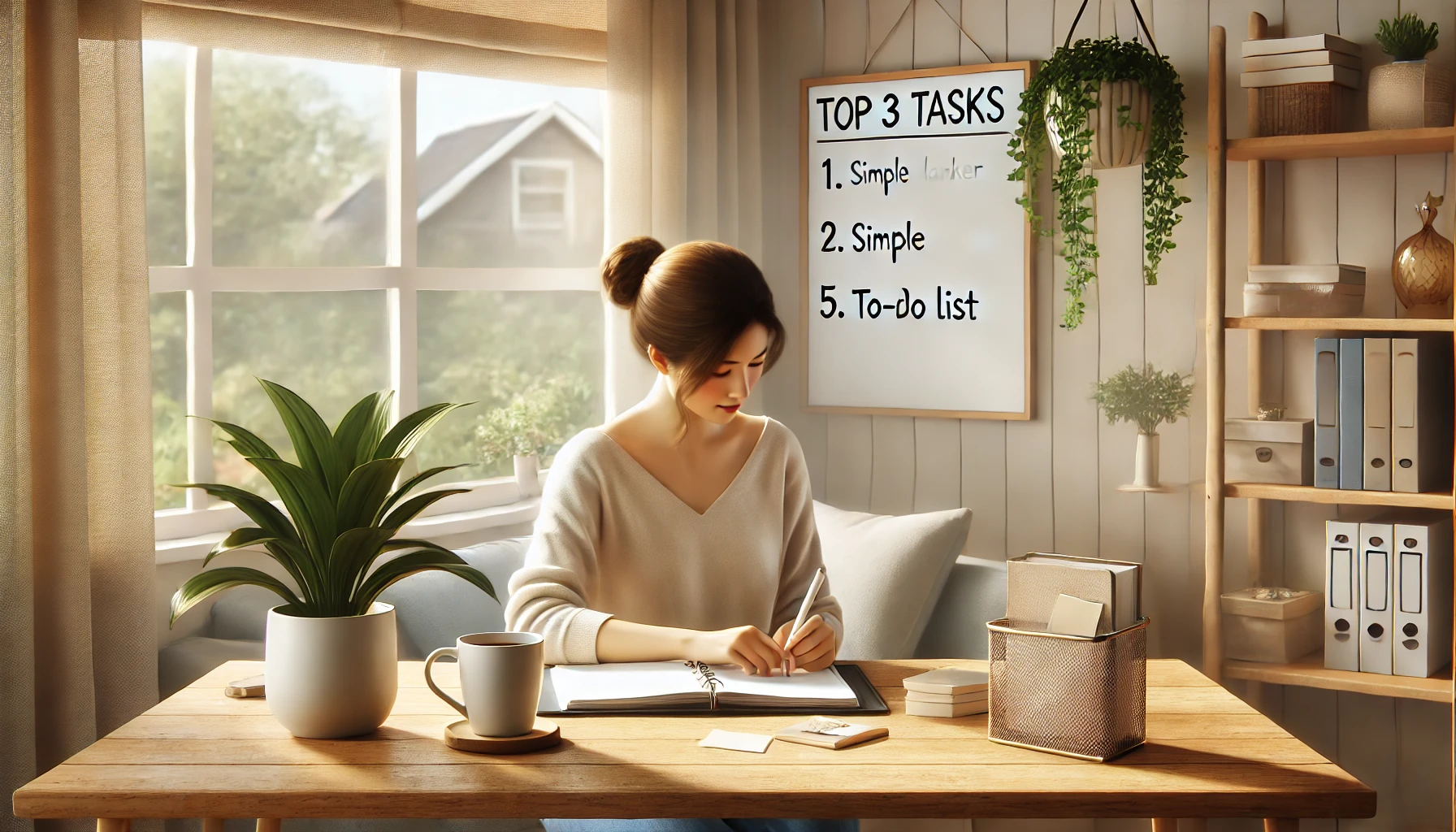You want to feel in control. You love the idea of being organized.
But sometimes? Organization feels like just another task on the list.
You create a system… and abandon it.
You start a to-do list… and forget where you put it.
Here’s the truth: staying organized doesn’t require perfection. It requires simplicity, clarity, and consistency—not pressure.
Let’s explore how to stay organized without losing your mind.
1. Keep It Simple to Stay Consistent
Overcomplicated systems don’t last.
Choose tools and routines that fit your life—not someone else’s.
Ask:
- What’s the minimum effective system I need to feel on track?
- Can I access it easily every day?
- Does it feel clear—or stressful?
The best system is the one you’ll actually use.
2. Use One Home for Your Tasks
Scattered sticky notes, random apps, mental lists… that’s chaos.
Choose ONE place to capture tasks:
- Digital: Notion, Todoist, Google Tasks
- Analog: Planner, bullet journal, simple notebook
- Hybrid: Digital list + physical planner
Less bouncing between tools = more mental peace.
3. Plan Weekly, Adjust Daily
You don’t need a perfect plan—just a rhythm that works.
Try This:
- Sunday or Monday: set weekly priorities
- Each morning: review your list, choose your top 3 tasks
- Evening: reset your list, check off wins, prep for tomorrow
Planning keeps you focused. Flexibility keeps you sane.
4. Batch Similar Tasks Together
Jumping between emails, errands, and deep work? That’s mental whiplash.
Group tasks by type or energy level:
- Admin block: emails, calls, bills
- Creative block: writing, brainstorming
- Errand block: groceries, pharmacy, post office
- Low-energy block: organizing files, cleaning inbox
Batched tasks = fewer mental switches = less overwhelm.
5. Declutter as You Go
Clutter isn’t just physical—it’s mental too.
Quick Declutters:
- 5-minute desktop cleanup at the end of the day
- Archive old notes once a week
- Delete apps or bookmarks you don’t use
- Unsubscribe from newsletters you skip
A clear space supports a clear mind.
6. Stop Trying to “Do It All”
Part of feeling disorganized is expecting yourself to do too much.
Ask:
- What can I delegate or drop?
- What actually matters this week?
- Can I focus on less but better?
Organization isn’t about fitting everything in—it’s about making room for what matters.
7. Set “Reset” Points Into Your Day
Organization isn’t a one-time setup. It’s a habit.
Try This:
- Morning: review goals and calendar
- Midday: quick inbox and task check-in
- Evening: tidy desk, write tomorrow’s top 3
Mini resets = less chaos buildup.
8. Use Visual Cues to Stay on Track
Sometimes your brain just needs a nudge.
Use:
- A whiteboard with weekly goals
- Sticky notes on your mirror
- A habit tracker or checklist
- Color-coded calendar blocks
Visuals help your brain remember what matters.
9. Give Yourself Grace and Space
Some days will be messy. That’s normal.
Staying organized doesn’t mean being perfect—it means having tools to bounce back quickly.
Reminder:
- It’s okay to forget.
- It’s okay to pause.
- It’s okay to adjust.
Your system should support your life—not stress it.
Organized ≠ Overloaded
You don’t need to manage every detail of your life.
You just need a few intentional systems that make things clearer, not heavier.
So simplify. Reset. Focus on what matters.
Because when organization feels light—you stick with it.
And that’s when it truly works.
